
United Nations Security Council resolution 940, adopted on 31 July 1994, after recalling resolutions 841 (1993), 861 (1993), 862 (1993), 867 (1993), 873 (1993), 875 (1993), 905 (1994), 917 (1994) and 933 (1994), the Council permitted a United States-led force to restore President Jean-Bertrand Aristide and authorities of the Government of Haiti, and extended the mandate of the United Nations Mission in Haiti (UNMIH) for an additional six months.

United Nations Security Council resolution 862, adopted unanimously on 31 August 1993, after recalling resolutions 841 (1993), 861 (1993) and an agreement between the President of Haiti and the Commander-in-Chief of the Armed Forces of Haiti, the Council reaffirmed the international community's commitment to a solution in Haiti and discussed the establishment of a new police force in Haiti under a proposed United Nations Mission in Haiti (UNMIH).
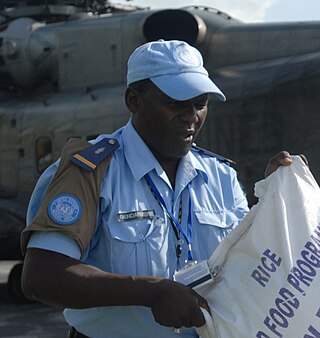
United Nations Security Council resolution 867, adopted unanimously on 23 September 1993, after recalling resolutions 841 (1993), 861 (1993) and 862 (1993) on the situation in Haiti, the council reiterated its position of protecting international peace and stability and established the United Nations Mission in Haiti (UNMIH).

United Nations Security Council resolution 888, adopted unanimously on 30 November 1993, after recalling resolutions 637 (1989), 693 (1991), 714 (1991), 729 (1992), 784 (1992), 791 (1992) and 832 (1993), the council expressed concern at aspects of the situation in El Salvador and extended the mandate of the United Nations Observer Mission in El Salvador (ONUSAL) until 31 May 1994.

United Nations Security Council resolution 905, adopted unanimously on 23 March 1994, after recalling resolutions 841 (1993), 861 (1993), 862 (1993), 867 (1993), 873 (1993) and 875 (1993), on the situation in Haiti, the council extended the mandate of the United Nations Mission in Haiti (UNMIH) until 30 June 1994.
United Nations Security Council resolution 916, adopted unanimously on 5 May 1994, after reaffirming Resolution 782 (1992) and all subsequent resolutions on Mozambique, the council decided to renew the mandate of the United Nations Operation in Mozambique (ONUMOZ) for a final period ending 15 November 1994, and discussed the implementation of the Rome General Peace Accords.

United Nations Security Council resolution 917, adopted unanimously on 6 May 1994, after recalling resolutions 841 (1993), 861 (1993), 862 (1993), 867 (1993), 873 (1993) and 875 (1993) and 905 (1994) on the situation in Haiti, the Council imposed further international sanctions on the country after the military authorities refused to implement the Governors Island Agreement to hand over power and instances of violations of human rights.
United Nations Security Council resolution 920, adopted unanimously on 26 May 1994, after recalling resolutions 637 (1989), 693 (1991), 714 (1991), 729 (1992), 784 (1992), 791 (1992), 832 (1993), 888 (1993), the council discussed the implementation of peace agreements in El Salvador and extended the mandate of the United Nations Observer Mission in El Salvador (ONUSAL) until 30 November 1994.
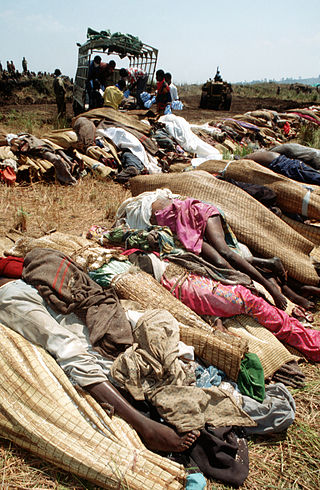
United Nations Security Council resolution 925, adopted unanimously on 8 June 1994, after reaffirming all resolutions on the situation in Rwanda, particularly resolutions 912 (1994) and 918 (1994), and Resolution 868 (1993) on the safety of United Nations peacekeepers, the council deployed additional battalions and extended the mandate of the United Nations Assistance Mission for Rwanda (UNAMIR) until 9 December 1994.

United Nations Security Council resolution 933, adopted unanimously on 30 June 1994, after recalling resolutions 841 (1993), 861 (1993), 862 (1993), 867 (1993), 873 (1993), 875 (1993), 905 (1994) and 917 (1994), the Council noted the deteriorating situation in Haiti and extended the mandate of the United Nations Mission in Haiti (UNMIH) until 31 July 1994.
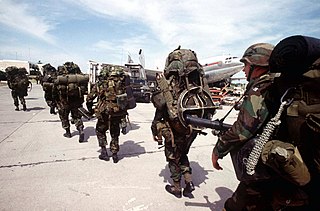
United Nations Security Council Resolution 944, adopted on 29 September 1994, after recalling resolutions 841 (1993), 861 (1993), 862 (1993), 867 (1993), 873 (1993), 875 (1993), 905 (1994), 917 (1994), 933 (1994) and 940 (1994), the Council affirmed its willingness to suspend sanctions against Haiti once the legitimate President Jean-Bertrand Aristide had returned following the removal of the military junta.

United Nations Security Council resolution 948, adopted on 15 October 1994, after recalling resolutions 841 (1993), 861 (1993), 862 (1993), 867 (1993), 873 (1993), 875 (1993), 905 (1994), 917 (1994), 933 (1994), 940 (1994) and 944 (1994), the Council welcomed the return of the legitimate President of Haiti Jean-Bertrand Aristide and lifted sanctions imposed on the country.

United Nations Security Council resolution 961 was adopted unanimously on 23 November 1994, after recalling resolutions 637 (1989), 693 (1991), 714 (1991), 729 (1992), 784 (1992), 791 (1992), 832 (1993), 888 (1993) and 920 (1994), the council discussed the implementation of peace agreements in El Salvador and extended the mandate of the United Nations Observer Mission in El Salvador (ONUSAL) for a final time until 30 April 1995.

United Nations Security Council resolution 964, adopted on 29 November 1994, after recalling resolutions 841 (1993), 861 (1993), 862 (1993), 867 (1993), 873 (1993), 875 (1993), 905 (1994), 917 (1994), 933 (1994), 940 (1994), 944 (1994) and 948 (1994), the council noted the progress in Haiti and strengthened the advance team of the United Nations Mission in Haiti (UNMIH).
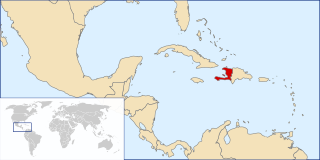
United Nations Security Council resolution 975, adopted on 30 January 1995, after recalling resolutions 841 (1993), 861 (1993), 862 (1993), 867 (1993), 873 (1993), 875 (1993), 905 (1994), 917 (1994), 933 (1994), 940 (1994), 944 (1994), 948 (1994) and 964 (1994), the Council discussed the transfer of responsibility from the Multinational Force (MNF) to the United Nations Mission in Haiti (UNMIH) and extended the mandate of UNMIH for a further six months until 31 July 1995.

United Nations Security Council resolution 999, adopted unanimously on 16 June 1995, after recalling Resolution 968 (1994) on the situation in Tajikistan, the Council extended the mandate of the United Nations Mission of Observers in Tajikistan (UNMOT) until 15 December 1995 and addressed the process of national reconciliation in the country.
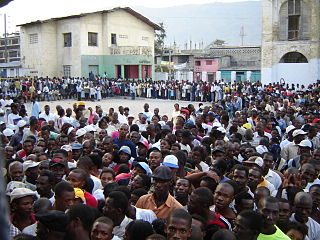
United Nations Security Council resolution 1007, adopted unanimously on 31 July 1995, after recalling resolutions 841 (1993), 861 (1993), 862 (1993), 867 (1993), 873 (1993), 875 (1993), 905 (1994), 917 (1994), 933 (1994), 940 (1994), 944 (1994), 948 (1994), 964 (1994) and 975 (1995), the Council discussed the election process and extended the mandate of the United Nations Mission in Haiti (UNMIH) for a further seven months.

United Nations Security Council resolution 1029, adopted unanimously on 12 December 1995, after recalling previous resolutions on Rwanda, including Resolution 872 (1993), Resolution 912 (1994), Resolution 918 (1994), Resolution 925 (1994), Resolution 955 (1994), Resolution 965 (1994), Resolution 978 (1995) and Resolution 997 (1995), the Council extended the mandate of the United Nations Assistance Mission for Rwanda (UNAMIR) for a final time, ending 8 March 1996, and adjusted its mandate.

United Nations Security Council resolution 1063, adopted unanimously on 28 June 1996, after recalling all Security Council and General Assembly resolutions on Haiti and the termination of the United Nations Mission in Haiti (UNMIH) on 30 June 1996 in accordance with Resolution 1048 (1996), the Council decided to establish the United Nations Support Mission in Haiti (UNSMIH) to train a national police force and maintain a stable environment.

United Nations Security Council resolution 1086, adopted unanimously on 29 November 1996, after recalling all relevant Security Council and General Assembly resolutions on Haiti, the Council decided to extend the United Nations Support Mission in Haiti (UNSMIH) for a final time, until 31 May 1997, unless it could make further progress, in which case, it would be extended until 31 July 1997.















